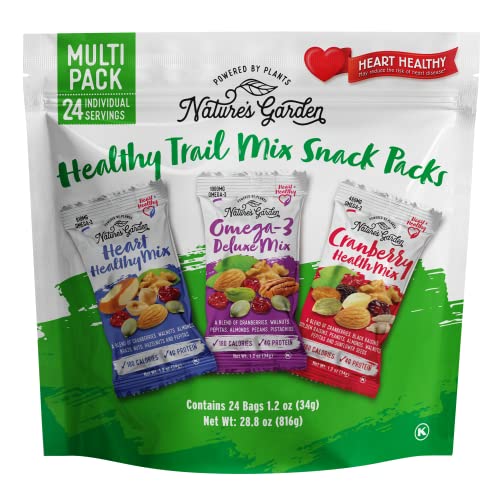I’ve always loved snacking on grapes—they’re sweet, refreshing, and so easy to grab on the go. But beyond their delicious taste, grapes pack a surprising punch when it comes to nutrition. Whether you prefer the crisp green ones or the juicy red varieties, these little fruits are more than just a tasty treat.
What makes grapes so special is how they combine flavor with health benefits. They’re loaded with vitamins, antioxidants, and natural sugars that give you energy without the guilt. Plus, their bite-sized nature makes them perfect for satisfying cravings in a healthy way. Who knew something so simple could be so good for you?
Why Grapes Make a Perfect Snack
Grapes combine amazing taste with impressive nutritional benefits, making them an ideal snack. Their natural sweetness satisfies cravings without relying on processed sugars, a quality I always look for in snacks. Plus, their juicy texture feels refreshing, especially on warm days.
Each grape is packed with antioxidants, particularly resveratrol, which supports heart health. Antioxidants play a crucial role in protecting the body from oxidative stress, something many snackers don’t often think about. Grapes also offer vitamin C and vitamin K, essential for immune function and bone health.
They’re portion-controlled naturally, which I love. A cup of grapes delivers around 104 calories and less than a gram of fat while providing fiber to support digestion. For comparison, most processed snack options don’t come close to this balanced nutrient profile.
As a busy snack creator, I appreciate how grapes don’t require preparation. They’re easy to grab-and-go or incorporate into recipes like yogurt parfaits or fruit salads. Their versatility makes them perfect for a quick snack or part of a wider meal plan.
For those looking to snack smarter, grapes check all the boxes: delicious, nutritious, and convenient.
Key Nutrients Found in Grapes
I’ve always been amazed by how such a small fruit can pack in so many essential nutrients. Grapes are a powerhouse of vitamins, antioxidants, minerals, and natural sugars, making them a perfect snack for anyone focused on healthy eating.
Vitamins and Antioxidants
Grapes provide vitamin C and vitamin K, which are crucial for immunity and bone strength. Vitamin C helps fight off colds and supports skin health, while vitamin K contributes to proper blood clotting and strong bones. What excites me even more is their antioxidant content. Grapes are rich in resveratrol, an antioxidant that supports heart health and reduces inflammation. They also contain flavonoids and carotenoids, which help protect cells from oxidative stress and may combat aging.
Minerals for Health
Grapes are a good source of essential minerals like potassium and copper. Potassium helps balance fluids in the body and supports heart health by regulating blood pressure. Copper, though needed in smaller amounts, plays a role in iron absorption and keeps your immune system functioning properly. I’ve noticed that adding grapes to my daily snack routine often helps me feel more energized and balanced, thanks to these vital minerals.
Natural Sugars and Energy Boost
Grapes are naturally sweet and provide quick energy due to their natural sugars, especially glucose and fructose. Unlike processed sugars, these natural sugars give a clean energy boost without the crash. I always grab a handful of grapes when I need a pick-me-up during the day—they’re a perfect pre-workout snack or mid-afternoon treat to avoid fatigue. Plus, their high water content keeps you hydrated while refreshing your palate.
Knowing the nutritional breakdown of grapes makes me appreciate them even more.
Health Benefits of Grapes
Snacking on grapes doesn’t just satisfy cravings; it supports overall health in ways most snacks can’t. Packed with nutrients, grapes contribute to heart health, immunity, and digestion, making them a versatile and wholesome choice.
Supporting Heart Health
Grapes promote heart health with natural compounds like resveratrol. This antioxidant boosts blood vessel function, supporting healthy circulation. Grapes also contain potassium, which helps maintain normal blood pressure levels. A cup of grapes offers about 288 mg of potassium, making it a simple way to support cardiovascular health while snacking.
Boosting Immunity
Vitamin C in grapes strengthens the immune system, helping fend off colds and infections. Each cup contains approximately 4 mg of vitamin C, adding a natural layer of protection to your diet. The presence of vitamin K also supports immune function and assists with blood clotting, making grapes a well-rounded immune booster.
Improving Digestive Health
The fiber in grapes contributes to better digestion. A cup provides almost 1.4 grams of fiber, aiding regular bowel movements and maintaining gut health. Their high water content—nearly 80%—keeps the digestive system hydrated, which is essential for smooth digestion and overall well-being.
Incorporating Grapes Into Your Diet
Grapes are more than just a refreshing snack—they’re versatile and easy to include in meals and snacks. I enjoy discovering creative ways to incorporate them into everyday eating, from simple pairings to more elaborate recipes.
Snack Ideas with Grapes
Keeping snack ideas simple makes healthy eating approachable. I often freeze grapes for a cooling treat, perfect for hot days or post-workout refreshment. A cup of frozen grapes satisfies sweet cravings with fewer calories. For a savory twist, I like to skewer grapes with cheese cubes or deli turkey slices. This snack balances sweetness with protein for sustained energy.
I also enjoy grape yogurt parfaits. Layer grapes with Greek yogurt and a sprinkle of granola for a naturally sweet, crunchy, and creamy combination. It’s quick to assemble and packed with nutrients like calcium and fiber. Grapes can even enhance smoothie bowls, blended into the base or added on top for extra texture.
Pairing Grapes with Other Healthy Foods
Pairing grapes with other healthy ingredients creates filling and flavorful snacks. I frequently mix them into salads. For example, grapes, spinach, walnuts, and goat cheese make a delicious mix of sweet, tangy, and nutty flavors. I also add them to quinoa or chicken salads for a burst of natural sweetness that complements the savory elements.
For breakfast, grapes go well with whole-grain toast topped with almond butter. Adding sliced grapes balances the nutty richness with a touch of fruity sweetness. Another favorite is a grape and veggie platter. Combine grapes with carrot sticks, cucumber slices, and hummus for a colorful, fiber-rich snack.
Grapes for On-The-Go Nutrition
When life gets busy, grapes are a reliable grab-and-go option. Their natural portion size makes them easy to pack in reusable snack bags or containers. I often add some roasted nuts or a boiled egg for protein, creating an energizing snack combo.
Grapes are also travel-friendly. Whether I’m heading to work, running errands, or hiking, they’re a mess-free snack to take along. For variety, I pack them with multitextured options like dark chocolate chips or whole-grain crackers. These combinations satisfy sweet and salty cravings while keeping nutrition on point.
Conclusion
Snacking on grapes has truly transformed the way I think about healthy eating. They’re a perfect balance of taste, nutrition, and convenience, making them hard to beat. Whether I’m enjoying them fresh, frozen, or paired with other snacks, grapes always feel like the right choice.
Their natural sweetness and impressive health benefits make them more than just a snack—they’re a simple way to support a healthier lifestyle. It’s amazing how something so small can pack so much goodness, and I can’t imagine my snack routine without them.












